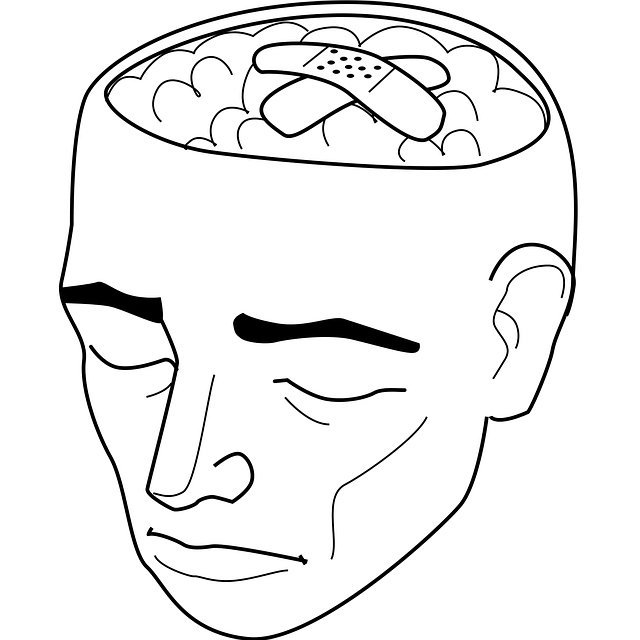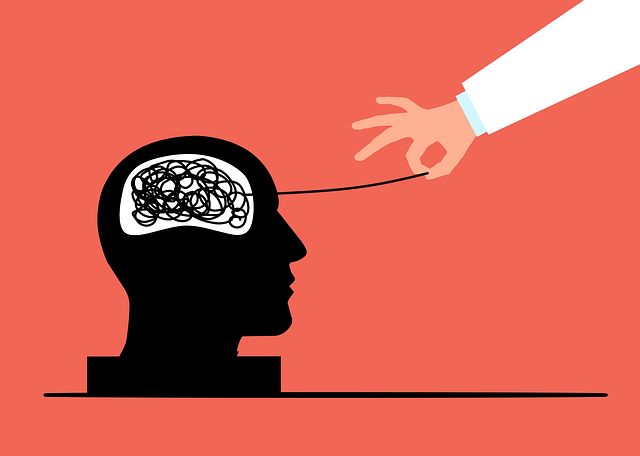The aging population poses unique mental health challenges requiring specialized services. Barriers like physical limitations and cultural stigma often prevent seniors from seeking care. Therapy tailored to older adults, including Christian counseling, offers effective solutions for depression, anxiety, and life changes. This approach combines spiritual guidance with therapeutic support, promoting emotional healing. Mental health professionals must manage risk factors and co-morbidities, tailoring therapy for optimal senior care. Advocacy initiatives targeting the elderly, incorporating Christian counseling, address mental health needs through tailored programs, crisis intervention, and empowerment. "Therapy for Elders" has successfully reduced stigma and improved well-being in communities, fostering support networks.
Mental health advocacy initiatives play a crucial role in addressing the unique needs of the elderly population. This article explores several key aspects, including understanding the specific mental health challenges faced by seniors, the valuable contribution of Christian counseling in providing support, and effective strategies for advocate engagement. We also delve into successful case studies of advocacy programs, highlighting innovative approaches to break stigma and enhance access to therapy for elders within the context of Christian counseling.
- Understanding the Unique Needs of Elderly Mental Health
- The Role of Christian Counseling in Supporting Seniors
- Building Awareness: Breaking Stigma Through Initiatives
- Effective Strategies for Advocate Engagement
- Case Studies: Successful Advocacy Programs in Practice
Understanding the Unique Needs of Elderly Mental Health

The mental health landscape for the elderly presents unique challenges that require tailored approaches and specialized services. As our population ages, it’s crucial to recognize that older adults may face distinct barriers to accessing care. These can include physical limitations, social isolation, cognitive changes, and a reluctance to seek help due to stigma or cultural norms. Many seniors might benefit from therapy designed specifically for their age group, addressing issues such as depression, anxiety, and the adjustment to significant life changes. Christian counseling offers a unique perspective, providing spiritual guidance alongside therapeutic support. This integrated approach can be particularly effective in fostering inner strength development, enabling emotional healing processes, and enhancing overall well-being.
Furthermore, mental health professionals working with the elderly must consider risk management planning. Given the potential for complex co-morbidities and medication interactions, a thorough assessment and continuous care are vital. Tailoring therapy to the individual needs of each senior ensures that they receive the most effective support. By acknowledging the unique aspects of elderly mental health, advocates can ensure that these individuals have access to comprehensive and compassionate care, allowing them to navigate life’s challenges with resilience and grace.
The Role of Christian Counseling in Supporting Seniors

Christian counseling plays a vital role in supporting seniors’ mental health and well-being. This therapeutic approach offers a unique perspective by integrating faith and spiritual beliefs into the healing process, which can be particularly comforting for older adults who often face various life transitions and challenges. Counselors trained in Christian counseling methods provide a safe space for individuals to explore their emotional struggles while drawing upon biblical principles and teachings. Through this holistic approach, seniors can find solace, purpose, and renewed hope.
The practice caters to the specific needs of elders by addressing not only their mental health but also their spiritual and emotional well-being. Counselors assist them in navigating through life’s complexities, such as loneliness, grief, or physical health issues. By incorporating prayer, biblical meditation, and faith-based discussions into therapy sessions, Christian counselors empower seniors to find strength and resilience. Moreover, this form of counseling can contribute to burnout prevention among mental health professionals by offering a supportive network within their communities, fostering a sense of purpose and satisfaction in their work.
Building Awareness: Breaking Stigma Through Initiatives

Mental health advocacy initiatives play a pivotal role in building awareness and breaking down the stigma surrounding mental health issues, particularly within communities often overlooked. One such group is the elderly population, who may face unique challenges that impact their emotional well-being. Through targeted programs and events, organizations can foster open conversations about mental health, encouraging individuals to seek support for issues like depression or anxiety. For instance, incorporating Christian counseling services tailored for seniors can provide a safe space for spiritual guidance and therapy, addressing both the mind and soul.
These initiatives go beyond raising awareness; they offer practical solutions such as crisis intervention guidance and emotional healing processes. By educating the community on emotional regulation techniques, individuals can develop coping mechanisms to manage stress and maintain mental balance. Such interventions are essential in creating a supportive environment where seniors feel empowered to prioritize their mental health, breaking down barriers and fostering a culture of care and understanding.
Effective Strategies for Advocate Engagement

Mental health advocacy initiatives thrive when they employ effective strategies to engage advocates. One powerful approach is tailoring programs like Mind Over Matter principles to resonate with specific demographics, such as elders in the community. Christian counseling services can play a pivotal role here by offering specialized therapy sessions that address unique mental health challenges faced by older adults while incorporating spiritual guidance. This tailored support fosters trust and encourages open dialogue about mental wellness.
Moreover, developing Mental Wellness Coaching Programs tailored to elders’ needs can significantly boost confidence and resilience. These programs focus on empowering individuals with practical tools and coping mechanisms, enabling them to navigate their mental health journeys proactively. By combining faith-based counseling with evidence-based coaching methods, advocacy groups create a holistic environment that not only addresses symptoms but also enhances overall well-being.
Case Studies: Successful Advocacy Programs in Practice

Successful advocacy programs for mental health have proven to be transformative in various communities, offering valuable insights into effective strategies. One notable example is the “Therapy for Elders” initiative, a community outreach program that targets older adults facing isolation and mental health challenges. By providing accessible Christian counseling services, this program has significantly reduced stigma associated with seeking help. Elderly participants have reported increased confidence and improved overall well-being, fostering a sense of belonging and support within their communities.
The implementation of such programs often involves tailored strategies like peer mentoring, education workshops, and social activities to engage individuals facing mental illness. For instance, community outreach programs can organize group therapy sessions, encouraging open dialogue and reducing the perceived barriers to seeking treatment. These initiatives not only address individual needs but also work towards broader Mental Illness Stigma Reduction Efforts, creating a more supportive environment for those struggling with their mental health.
Mental health advocacy initiatives, such as those focused on the unique needs of the elderly and the role of Christian counseling, play a pivotal role in enhancing well-being. By breaking stigma through awareness programs and engaging advocates effectively, we can ensure that seniors receive the necessary support, including therapy for elders from Christian counselors. Successful advocacy programs, highlighted through case studies, offer inspiring models for fostering inclusive care and improving mental health outcomes for our aging population.










